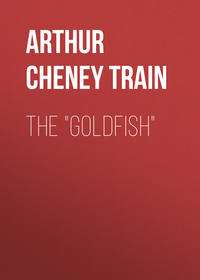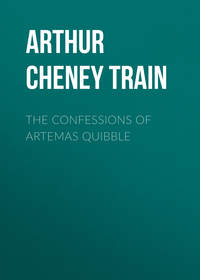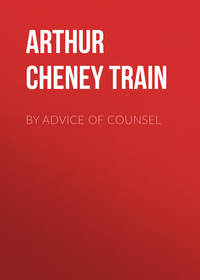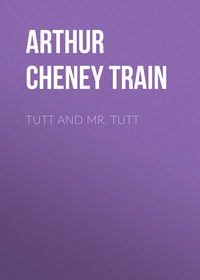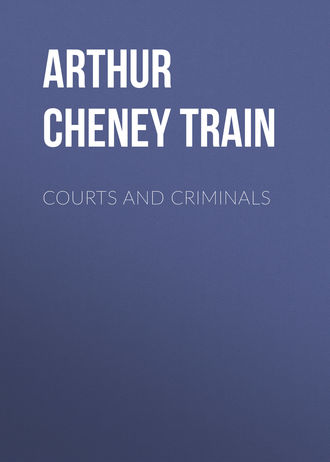 полная версия
полная версияCourts and Criminals
When the case against Albert T. Patrick, later convicted of the murder of the aged William M. Rice, was in course of preparation, it was found desirable to show that Patrick had called up his accomplice on the telephone upon the night of the murder. Accordingly, the telephone company was compelled to examine several hundred thousand telephone slips to determine whether or not this had actually occurred. While the fact was established in the affirmative, the company now destroys its slips in order not to have to repeat the performance a second time.
Likewise, in the preparation of the Molineux case it became important to demonstrate that the accused had sent a letter under an assumed name ordering certain remedies. As a result, one of the employees of the patent-medicine company spent several months going over their old mail orders and comparing them with a certain sample, until at last the letter was unearthed. Of course, the district attorney had to pay for it, and it was probably worth what it cost to the prosecution, although Molineux's conviction was reversed by the Court of Appeals and he was acquitted upon his second trial.
The danger is, however, that a prosecutor who has an unlimited amount of money at his disposal may be led into expenditures which are hardly justified simply because he thinks they may help to secure a conviction. Nothing is easier than to waste money in this fashion, and public officials sometimes spend the county's money with considerably more freedom than they would their own under similar circumstances.
The legitimate expenses connected with the preparation of every important case are naturally large. For example, diagrams must be prepared, photographs taken of the place of the crime, witnesses compensated for their time and their expenses paid, and, most important of all, competent experts must be engaged. This leads us to an interesting aspect of the modern jury trial.
When no other defence to homicide is possible the claim of insanity is frequently interposed. Nothing is more confusing to the ordinary juryman than trying to determine the probative value of evidence touching unsoundness of mind, and the application thereto of the legal test of criminal responsibility. In point of fact, juries are hardly to be blamed for this, since the law itself is antiquated and the subject one abounding in difficulty. Unfortunately the opportunity for vague yet damaging testimony on the part of experts, the ease with which any desired opinion can be defended by a slight alteration in the hypothetical facts, and the practical impossibility of exposure, have been seized upon with avidity by a score or more of unscrupulous alienists who are prepared to sell their services to the highest bidder. These men are all the more dangerous because, clever students of mental disease and thorough masters of their subject as they are, they are able by adroit qualifications and skilful evasions to make half-truths seem as convincing as whole ones. They ask and receive large sums for their services, and their dishonest testimony must be met and refuted by the evidence of honest physicians, who, by virtue of their attainments, have a right to demand substantial fees. Even so, newspaper reports of the expense to the State of notorious trials are grossly exaggerated. The entire cost of the first Thaw trial to the County of New York was considerably less than twenty thousand dollars, and the second trial not more than half that amount. To the defence, however, it was a costly matter, as the recent schedules in bankruptcy of the defendant show. Therein it appears that one of his half-dozen counsel still claims as owing to him for his services on the first trial the modest sum of thirty-five thousand dollars. The cost of the whole defence was probably ten times that sum. Most of the money goes to the lawyers, and the experts take the remainder.
It goes without saying that both prosecutor and attorney for the defence must be masters of the subject involved. A trial for poisoning means an exhaustive study not only of analytic chemistry, but of practical medicine on the part of all the lawyers in the case, while a plea of insanity requires that, for the time being, the district attorney shall become an alienist, familiar with every aspect of paranoia, dementia praecox, and all other forms of mania. He must also reduce his knowledge to concrete, workable form, and be able to defeat opposing experts on their own ground. But such knowledge comes only by prayer and fasting—or, perhaps, rather by months of hard and remorseless grind.
The writer once prosecuted a druggist who had, by mistake, filled a prescription for a one-fourth-grain pill of calomel with a one-fourth-grain pill of morphine. The baby for whom the pill was intended died in consequence. The defence was that the prescription had been properly filled, but that the child was the victim of various diseases, from acute gastritis to cerebro-spinal meningitis. In preparation the writer was compelled to spend four hours every evening for a week with three specialists, and became temporarily a minor expert on children's diseases. To-day he is forced to admit that he would not know a case of acute gastritis from one of mumps. But the druggist was convicted.
Yet it is not enough to prepare for the defence you believe the accused is going to interpose. A conscientious preparation means getting ready for any defence he may endeavor to put in. Just as the prudent general has an eye to every possible turn of the battle and has, if he can, re-enforcements on the march, so the prosecutor must be ready for anything, and readiest of all for the unexpected. He must not rest upon the belief that the other side will concede any fact, however clear it may seem. Some cases are lost simply because it never occurs to the district attorney that the accused will deny something which the State has twenty witnesses to prove. The twenty witnesses are, therefore, not summoned on the day of trial, the defendant does deny it, and as it is a case of word against word the accused gets the benefit of the doubt and, perhaps, is acquitted.
No case is properly prepared unless there is in the court-room every witness who knows anything about any aspect of the case. No one can foretell when the unimportant will become the vital. Most cases turn on an unconsidered point. A prosecutor once lost what seemed to him the clearest sort of a case. When it was all over, and the defendant had passed out of the courtroom rejoicing, he turned to the foreman and asked the reason for the verdict.
"Did you hear your chief witness say he was a carpenter?" inquired the foreman.
"Why, certainly," answered the district attorney,—
"Did you hear me ask him what he paid for that ready-made pine door he claimed to be working on when he saw the assault?"
The prosecutor recalled the incident and nodded.
"Well, he said ten dollars—and I knew he was a liar. A door like that don't cost but four-fifty!"
It is, perhaps, too much to require a knowledge of carpentry on the part of a lawyer trying an assault case. Yet the juror was undoubtedly right in his deduction.
In a case where insanity is the defence, the State must dig up and have at hand every person it can find who knew the accused at any period of his career. He will probably claim that in his youth he was kicked in a game of foot-ball and fractured his skull, that later he fell into an elevator shaft and had concussion of the brain, or that he was hit on the head by a burglar. It is usually difficult, if not impossible, to disprove such assertions, but the prosecutor must be ready, if he can, to show that foot-ball was not invented until after the defendant had attained maturity, that it was some other man who fell down the elevator shaft, and to produce the burglar to deny that the assault occurred. Naturally, complete preparation for an important trial demands the presence of many witnesses who ultimately are not needed and who are never called. Probably in most such cases about half the witnesses do not testify at all. Most of what has been said relates to the preparation for trial of cases where the accused is already under arrest when the district attorney is called into the case. If this stage has not been reached the prosecutor may well be called upon to exercise some of the functions of a detective in the first instance.
A few years ago it was brought to the attention of the New York authorities that many blackmailing letters were being received bearing the name of "Lewis Jarvis." These were of a character to render the apprehension of the writer of them a matter of much importance. The letters directed that the replies be sent to a certain box in the New York post-office, but as the boxes are numerous and close together it seemed doubtful if "Lewis Jarvis" could be detected when he called for his mail. The district attorney, the police, and the post-office officials finally evolved the scheme of plugging the lock of "Lewis Jarvis's" box with a match. The scheme worked, for "Jarvis," finding that he could not use his key, went to the delivery window and asked for his mail. The very instant the letters reached his hand the gyves were upon the wrists of one of the best-known attorneys in the city.
When the district attorney has been apprised that a crime has been committed, and that a certain person is the guilty party, he not infrequently allows the suspect to go his way under the careful watch of detectives, and thus often secures much new evidence against him. In this way it is sometimes established that the accused has endeavored to bribe the witnesses and to induce them to leave the State, while the whereabouts of stolen loot is often discovered. In most instances, however, the district attorney begins where the police leave off, and he merely supplements their labors and prepares for the actual trial itself. But the press he has always with him, and from the first moment after the crime up to the execution of the sentence or the liberation of the accused, the reporters dog his footsteps, sit on his doorstep, and deluge him with advice and information.
Now a curious feature about the evidence "worked up" by reporters for their papers is that little of it materializes when the prosecutor wishes to make use of it. Of course, some reporters do excellent detective work, and there are one or two veterans attached to the criminal courts in New York City who, in addition to their literary capacities, are natural-born sleuths, and combine with a knowledge of criminal law, almost as extensive as that of a regular prosecutor, a resourcefulness and nerve that often win the case for whichever side they espouse. I have frequently found that these men knew more about the cases which I was prosecuting than I did myself, and a tip from them has more than once turned defeat into victory. But newspaper men, for one reason or another, are loath to testify, and usually make but poor witnesses. They feel that their motives will be questioned, and are naturally unwilling to put themselves in an equivocal position. The writer well remembers that in the Mabel Parker case, where the defendant, a young and pretty woman, had boasted of her forgeries before a roomful of reporters, it was impossible, when her trial was called, to find more than one of them who would testify—and he had practically to be dragged to the witness chair. In point of fact, if reporters made a practice of being witnesses it would probably hurt their business. But, however much "faked" news may be published, a prosecutor who did not listen to all the hints the press boys had to give would make a great mistake; and as allies and advisers they are often invaluable, for they can tell him where and how to get evidence of which otherwise he would never hear.
The week before a great case is called is a busy one for the prosecutor in charge. He is at his office early to interview his main witnesses and go over their testimony with them so that their regular daily work may not be interrupted more than shall be actually necessary. Some he cautions against being overenthusiastic and others he encourages to greater emphasis. The bashful "cop" is badgered until at last he ceases to begin his testimony in the cut-and-dried police fashion.
"On the morning of the twenty-second of July, about 3.30 A.M., while on post at the corner of Desbrosses Street—," he starts.
"Oh, quit that!" shouts the district attorney. "Tell me what you saw in your own words."
The "cop" blushes and stammers:
"Aw, well, on the morning of the twenty-second of July, about 3.30 A.M."
"Look here!" yells the prosecutor, jumping to his feet and shaking his fist at him, "do you want to be taken for a d—n liar? 'Morning of the twenty-second of July, about 3.30 A.M., while on post I' You never talked like that in your life."
By this time the "cop" is "mad clear through."
"I'm no liar!" he retorts. "I saw the – pull his gun and shoot!"
"Well, why didn't you say so?" laughs the prosecutor, and the officer mollified with a cigar, dimly perceives the objectionable feature of his testimony.
About this time one of the sleuths comes in to report that certain much-desired witnesses have been "located" and are in custody downstairs. The assistant makes immediate preparation for taking their statements. Then one of the experts comes in for a chat about a new phase of the case occasioned by the discovery that the defendant actually did have spasms when an infant. The assistant wisely makes an appointment for the evening. A telegram arrives saying that a witness for the defence has just started for New York from Philadelphia and should be duly watched on arrival. The district attorney sends for the assistant to inquire if he has looked up the law on similar cases in Texas and Alabama—which he probably has not done; and a friend on the telephone informs him that Tomkins, who has been drawn on the jury, is a boon companion of the prisoner and was accustomed to play bridge with him every Sunday night before the murder.
Coincidently, some private detectives enter with a long report on the various members of the panel, including the aforesaid Tomkins, whom they pronounce to be "all right," and as never having, to their knowledge, laid eyes on the accused. Finally, in despair, the prosecutor locks himself in his library with a copy of the Bible, "Bartlett's Familiar Quotations," and a volume of celebrated speeches, to prepare his summing up, for no careful trial lawyer opens a case without first having prepared, to some extent, at least, his closing address to the jury. He has thought about this for weeks and perhaps for months. In his dreams he has formulated syllogisms and delivered them to imaginary yet obstinate talesman. He has glanced through many volumes for similes and quotations of pertinency. He has tried various arguments on his friends until he knows just how, if he succeeds in proving certain facts and the defence expected is interposed, he is going to convince the twelve jurors that the defendant is guilty and, perhaps, win an everlasting reputation as an orator himself.
This superficial sketch of how an important criminal case is got ready for trial would be incomplete without some further reference to something which has been briefly hinted at before—preparation upon its purely legal aspect. This may well demand almost as much labor as that required in amassing the evidence. Yet a careful and painstaking investigation of the law governing every aspect of the case is indispensable to success. The prosecutor with a perfectly clear case may see the defendant walk out of court a free man, simply because he has neglected to acquaint himself with the various points of law which may arise in the course of the trial, and the lawyer for an accused may find his client convicted upon a charge to which he has a perfectly good legal defence, for the same reason.
Looking at it from the point of view of the prisoner's counsel, it is obvious that it is quite as efficacious to free your client on a point of law, without having the case go to the jury at all, as to secure an acquittal at their hands.
At the conclusion of the evidence introduced in behalf of the State there is always a motion made to dismiss the case on the ground of alleged insufficiency in the proof. This has usually been made the subject of the most exhaustive study by the lawyers for the defence, and requires equal preparation on the part of the prosecutor. The writer recalls trying a bankrupt, charged with fraud, where the lawyer for the defendant had written a brief of some three hundred pages upon the points of law which he proposed to argue to the court upon his motion to acquit. But, unfortunately, his client pleaded guilty and the volume was never brought into play.
But a mastery of the law, a thorough knowledge and control of the evidence, a careful preparation for the opening and closing addresses, and an intimate acquaintance with the panel from which the jury is to be drawn are by no means the only elements in the preparation for a great legal battle. One thing still remains, quite as important as the rest—the selection of the best time and the best court for the trial. "A good beginning" in a criminal case means a beginning before the right judge, the proper jury, and at a time when that vague but important influence known as public opinion augurs success. A clever criminal lawyer, be he prosecutor or lawyer for the defendant, knows that all the preparation in the world is of no account provided his case is to come before a stupid or biased judge, or a prejudiced or obstinate jury. Therefore, each side, in a legal battle of importance, studies, as well as it can, the character, connections, and cast of mind of the different judges who may be called upon to hear the case, and, like a jockey at the flag, tries to hurry or delay, as the case may be, until the judicial auspices appear most favorable. A lawyer who has a weak defence seeks to bring the case before a weak judge, or, if public clamor is loud against his client, makes use of every technical artifice to secure delay, by claiming that there are flaws in the indictment, or by moving for commissions to take testimony in distant points of the country. The opportunities for legal procrastination are so numerous that in a complicated case the defence may often delay matters for over a year. This may be an important factor in the final result.
Yet even this is not enough, for, ultimately, it is the judge's charge to the jury which is going to guide their deliberations and, in large measure, determine their verdict. The lawyers for the defence, therefore, prepare long statements of what they either believe or pretend to believe to be the law. These statements embrace all the legal propositions, good or bad, favorable to their side of the case. If they can induce the judge to follow these so much the better for their client, for even if they are not law it makes no difference, since the State has no appeal from an acquittal in a criminal case, no matter how much the judge has erred. In the same way, but not in quite the same fashion, the district attorney prepares "requests to charge," but his desire for favorable instructions should be, and generally is, curbed by the consideration that if the judge makes any mistake in the law and the defendant is convicted he can appeal and upset the case. Of course, some prosecutors are so anxious to convict that they will wheedle or deceive a judge into giving charges which are not only most inimical to the prisoner, but so utterly unsound that a reversal is sure to follow; but when one of these professional bloodhounds is baying upon the trail all he thinks of is a conviction—that is all he wants, all the public will remember; to him will be the glory; and when the case is finally reversed he will probably be out of office. These "requests" cover pages, and touch upon every phase of law applicable or inapplicable to the case. Frequently they number as many as fifty, sometimes many more. It is "up to" the judge to decide "off the bat" which are right and which are wrong. If he guesses that the right one is wrong or the wrong one right the defendant gets a new trial.
CHAPTER III. Sensationalism and Jury Trials
For the past twenty-five years we have heard the cry upon all sides that the jury system is a failure, and to this general indictment is frequently added the specification that the trials in our higher courts of criminal justice are the scenes of grotesque buffoonery and merriment, where cynical juries recklessly disregard their oaths and where morbid crowds flock to satisfy the cravings of their imaginations for details of blood and sexuality.
It is unnecessary to question the honesty of those who thus picture the administration of criminal justice in America. Indeed, thus it probably appears to them. But before such an arraignment of present conditions in a highly civilized and progressive nation is accepted as final, it is well to examine into its inherent probabilities and test it by what we know of the actual facts.
In the first place, it should be remembered that the jury was instituted and designed to protect the English freeman from tyranny upon the part of the crown. Judges were, and sometimes still are, the creatures of a ruler or unduly subject to his influence. And that ruler neither was, nor is, always the head of the nation; but just as in the days of the Normans he might have been a powerful earl whose influence could make or unmake a judge, so to-day he may be none the less a ruler if he exists in the person of a political boss who has created the judge before whom his political enemy is to be tried. The writer has seen more than one judge openly striving to influence a jury to convict or to acquit a prisoner at the dictation of such a boss, who, not content to issue his commands from behind the arras, came to the courtroom and ascended the bench to see that they were obeyed. Usually the jury indignantly resented such interference and administered a well-merited rebuke by acting directly contrary to the clearly indicated wishes of the judge.
But while admitting its theoretic value as a bulwark of liberty, the modern assailant of the jury brushes the consideration aside by asserting that the system has "broken down" and "degenerated into a farce."
Let us now see how much of a farce it is. If four times out of five a judge rendered decisions that met with general approval, he would probably be accounted a highly satisfactory judge. Now, out of every one hundred indicted prisoners brought to the bar for trial, probably fifteen ought to be acquitted if prosecuted impartially and in accordance with the strict rules of evidence. In the year 1910 the juries of New York County convicted in sixty-six per cent of the cases before them. If we are to test fairly the efficiency of the system, we must deduct from the thirty-four acquittals remaining the fifteen acquittals which were justifiable. By so doing we shall find that in the year 1910 the New York County juries did the correct thing in about eighty-one cases out of every hundred. This is a high percentage of efficiency.2 Is it likely that any judge would have done much better?
After a rather long experience as a prosecutor, in which he conducted many hundreds of criminal cases, the writer believes that the ordinary New York City jury finds a correct general verdict four times out of five. As to talesmen in other localities he has no knowledge or reliable information. It seems hardly possible, however, that juries in other parts of the United States could be more heterogeneous or less intelligent than those before which he formed his conclusions. Of course, jury judgments are sometimes flagrantly wrong. But there are many verdicts popularly regarded as examples of lawlessness which, if examined calmly and solely from the point of view of the evidence, would be found to be the reasonable acts of honest and intelligent juries.
For example, the acquittal of Thaw upon the ground of insanity is usually spoken of as an illustration of sentimentality on the part of jurymen, and of their willingness to be swayed by their emotions where a woman is involved. But few clearer cases of insanity have been established in a court of justice. The district attorney's own experts had pronounced the defendant a hopeless paranoiac; the prosecutor had, at a previous trial, openly declared the same to be his own opinion; and the evidence was convincing. At the time it was rendered, the verdict was accepted as a foregone conclusion. To-day the case is commonly cited as proof of the gullibility of juries and of the impossibility of convicting a rich man of a crime.


